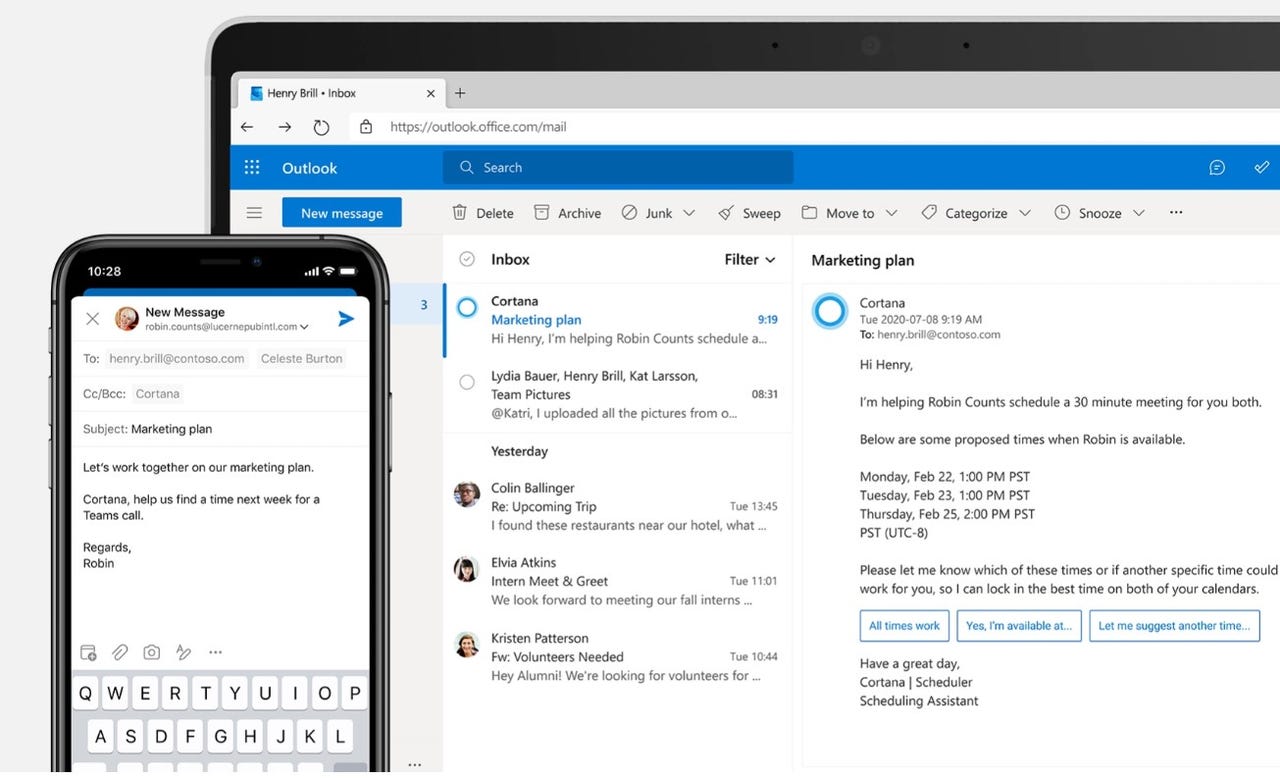Microsoft to end its Scheduler meeting-coordination service in September 2023


Microsoft is planning to discontinue its Scheduler service for Microsoft 365 on Sept. 1, 2023, according to a note posted to its Office Message Center. However, officials are saying the company "may bundle some of these [Scheduler] features with another offering in the future."
Scheduler is the service formerly known as Calendar.help. It enables Cortana to act as the front end for scheduling meetings with people outside of a user's organization. Microsoft began rolling out Scheduler in English across Microsoft 365 accounts in June 2021, a year later than it originally expected (as a result of effects from the COVID-19 pandemic, officials said).
Also: How to get Microsoft Office for free
Scheduler allows users to use natural-language queries, such as, "Find a time for Paul and me to meet for breakfast next week," to schedule their meetings. The backend service looks up attendee availability and goes back and forth over email before sending calendar invitations. Scheduler can also reschedule and cancel meetings.
ZDNET Recommends
Scheduler has been available as an add-on to many Microsoft 365 licenses with a Microsoft Exchange Online plan. Scheduler costs $10 per user per month with an annual commitment and $12 per user per month if paid monthly. Volume and partner discounts are available and there also has been a 30-day standard free trial for Scheduler.
Microsoft's Message Center note about the coming cancellation of Scheduler doesn't say why the company is dropping the service. My guess would be lack of use, especially given the way Cortana largely has disappeared from Microsoft's radar screen. Microsoft also offers a similar service for Outlook called FindTime.
Microsoft announced late last month that it plans to drop its Kaizala group-messaging service in September 2023. Again, officials didn't say exactly why, though lack of use could be the reason. Microsoft officials also just may be cleaning house and dropping lesser-used services as a way to save money, given the Windows and Office divisions are doing a bit of belt-tightening as of late.